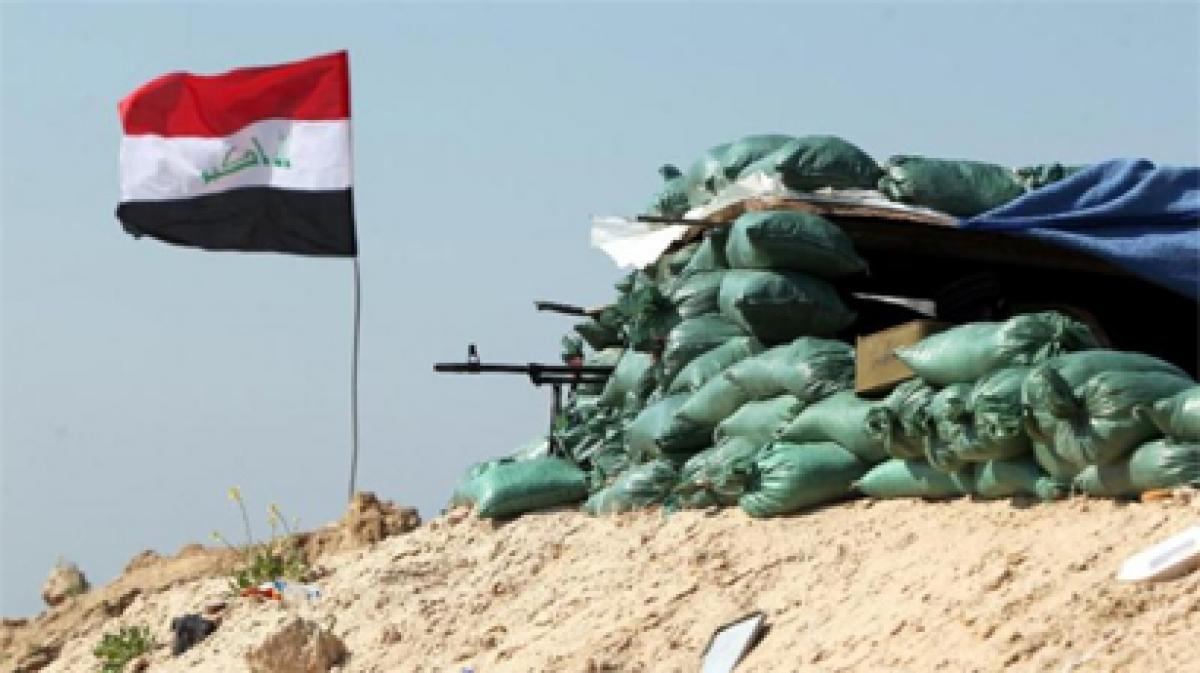Live
- Cyclone kills 14 in French territory Mayotte
- 3rd Test: Head, Smith centuries flatten India on Day 2
- AAP Announces Final Candidate List For 2025 Delhi Assembly Elections, Kejriwal To Contest From New Delhi
- Bangladesh unrest has delayed execution of some vital projects: Tripura CM
- PIL in SC seeks direction to designate BMC as sole planning, sanctioning authority for Mumbai
- 3rd Test: Centuries from Head, Smith help dominant Australia feast on listless India
- AAP final list of 38 names in Delhi: Kejriwal, CM Atishi retain seats
- Tributes Paid to Sardar Vallabhbhai Patel on His Death Anniversary at CM Revanth Reddy's Residence
- In just one year, Bhajanlal govt wins hearts of people
- CM Chandrababu announces establishment of Potti Sriramulu Telugu University
Just In

Deadly clashes erupted between Iraqi tribesmen and the Islamic State group inside jihadist bastion Fallujah on Friday, a sign their longstanding hold on the city west of Baghdad is weakening.
Deadly clashes erupted between Iraqi tribesmen and the Islamic State group inside jihadist bastion Fallujah on Friday, a sign their longstanding hold on the city west of Baghdad is weakening.
Fallujah is one of two Iraqi cities still controlled by IS, and a concerted and sustained uprising by local tribes could pose a significant threat to the estimated 300 to 400 jihadists inside it.
Sunni Arab tribesmen from Anbar province, where Fallujah is located, played a key role in driving back IS's predecessor organisation Al-Qaeda in Iraq after joining forces with US troops from 2006.
The Friday Fallujah shootout pitted fighters from multiple tribes against IS members known as Al-Hisba, who are responsible for enforcing religious strictures in the city.
"Clashes took place between sons of the Al-Mahamda and Al-Juraisat tribes against the Al-Hisba group," Issa Sayir, the exiled official responsible for the Fallujah area, said.
Sayir said the gunfight reflected tensions resulting from increasingly difficult living conditions caused by Fallujah's isolation by the security forces.
Conditions in Fallujah are dire, with Anbar Governor Sohaib al-Rawi saying that the situation "has reached a state of famine."
Sayir said the fighting began in Al-Jolan in northwest Fallujah, and spread to the Nazal area in the city centre and Al-Askari on its east side.
Anbar provincial councillor Raja al-Barakat also said the unrest had spread to Nazal and other areas.
A police lieutenant colonel gave a different account of the start of the fighting, saying it began after Al-Hisba members accused a woman in Al-Nizaiza market in central Fallujah of misconduct because she had failed to cover her hands with gloves.
Years outside government control
The officer said that members of a third tribe, Al-Halabsa, were also involved in the clashes against IS, and that sporadic fighting was continuing.
Sheikh Majeed al-Juraisi, a leader of the Al-Juraisat tribe, described the clashes as an uprising against IS in the city and called on the government and security forces to help residents who are fighting the jihadists.
Tribesmen have seized part of Al-Jolan, where the fighting began, Juraisi said.
The interior ministry said tribesmen had seized parts of Al-Jolan and its outskirts but that IS later regained control.
Citing intelligence information, the ministry said the clashes began as a fight between Al-Juraisat tribesmen and the Al-Hisba in Al-Nizaiza market.
It escalated into a shootout in which light and medium weapons were used, and Al-Mahamda and Al-Halabsa tribesmen backed Al-Juraisat fighters, the ministry said.
Fallujah, which is located about 50 kilometres (30 miles) west of Baghdad, has been held by anti-government forces since the beginning of 2014.
It is the only Iraqi city apart from the main northern city of Mosul still under IS control.
Tens of thousands of civilians are estimated to still be inside Fallujah.
Anti-government fighters took control of the city in early 2014 during unrest that broke out after security forces demolished a protest camp farther west, and it is now one of IS's key remaining strongholds in the country.
IS launched a sweeping offensive that overran large areas north and west of Baghdad in June 2014, but security forces and allied fighters have pushed the jihadists back with support from US-led air strikes.
Tribesmen have played a key role in holding the jihadists back in multiple areas, including Haditha in Anbar, Amerli in Salaheddin province and Dhuluiyah in Diyala.

© 2024 Hyderabad Media House Limited/The Hans India. All rights reserved. Powered by hocalwire.com







